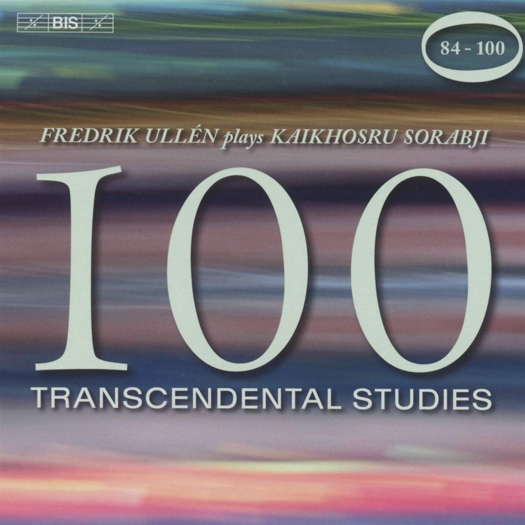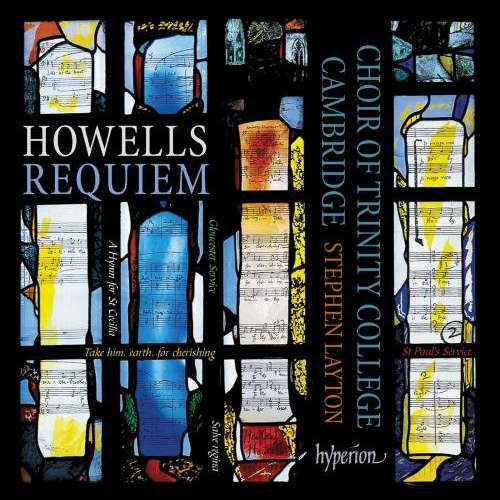- trumpet music
- György Cziffra
- Giorgio Federico Ghedini
- Ovidiu Badila
- Klose
- Orlando Gibbons
- Caracas
- ABBA Voyage

Transcendental Studies
The music of English composer Kaikhosru Shapurji Sorabji from an Italian perspective, by GIUSEPPE PENNISI
'On the two CDs, Fredrik Ullén demonstrates enthusiasm for Sorabji as well as high technical skills.'
This two CD set, published by BIS Records AB (Sweden), includes the last sixteen of one hundred transcendental studies (ie études 84-100) for solo piano by Kaikhosru Shapurji Sorabji as played by Fredrik Ullén.
Kaikhosru Shapurji Sorabji - born Leon Dudley Sorabji, 14 August 1892; died 15 October 1988 - was an English composer, music critic, pianist and writer. His musical life spanned eight decades and ranges from sets of miniatures to works lasting several hours. One of the most prolific twentieth century composers, he is best known for his piano music and large-scale, technically intricate compositions, which include seven symphonies for piano solo, four toccatas, the Sequentia cyclica and these 100 Transcendental Studies. He felt alienated from English society because of his homosexuality and mixed ancestry, and had a lifelong tendency to seclusion. His feelings of otherness, the sense of alienation that he, as a homosexual of mixed ancestry, experienced for most of his life, and his development of a non-English identity, moulded his music.
Sorabji was educated privately. His mother was English and his father a Parsi industrialist from India, who set up a trust fund that freed his family from the need to work. Sorabji, although a reluctant performer and not a virtuoso, played some of his music publicly between 1920 and 1936. In the late 1930s, his attitude shifted and he imposed restrictions on performance of his works, which he lifted in 1976. His compositions received little exposure in those years and he remained in public view mainly through his writings, which include the books Around Music and Mi contra fa: The Immoralisings of a Machiavellian Musician. During this time, he also left London and eventually settled in the village of Corfe Castle, Dorset. Information on Sorabji's life, especially his later years, is scarce, with most of it coming from the letters he exchanged with his friends.
As a composer, Sorabji was largely self-taught. Although he was attracted to modernist aesthetics at first, he later dismissed much of the established and contemporary repertoire. He said that he drew on diverse influences like Ferruccio Busoni, Claude Debussy and Karol Szymanowski, but I have difficulties in finding references to these composers in listening to his music.
He developed a style characterised by frequent polyrhythms, interplay of tonal and atonal elements and lavish ornamentation. There is no economy in his writing, not even for solo piano. The two CDs show that his Transcendental Studies have little or no concern for duration: single technical or structural ideas are explored at length with variations and counter-variations. There are references to religious music too. During his life, Sorabji travelled through quite a few religious and mystic experiences: from those of his Asian ancestors to a rich sample of Christian denominations.
Swedish pianist Fredrik Ullén has released all 100 studies; he is clearly an adminer of Sorabji's piano works. He suggests that 100 Transcendental Studies can be seen as presaging the piano music of György Ligeti, Michael Finnissy and Brian Ferneyhough. I would be much more cautious. It is generally recognized that the études vary greatly in style, character and length, with the shortest running about a minute and the longest running approximately forty-five minutes. They include atonal melodies, dissonant harmonies, complex polyrhythms, rapid changes in texture and mood, and extreme technical challenges for the pianist to work through.
Listen — Sorabji: Volante leggiero (100 Transcendental Studies)
(CD1 track 8, 0:15-1:11) ℗ 2020 BIS Records AB :
On the two CDs, Fredrik Ullén demonstrates enthusiasm for Sorabji as well as high technical skills.
For beginners, I would suggest Tango Habanera as an introduction to Sorabji's last part of the cycle of studies: it is pleasant with quite a few reminiscenses of a variety of other composers' music.
Listen — Sorabji: Tango Habanera (100 Transcendental Studies)
(CD1 track 1, 0:03-0:55) ℗ 2020 BIS Records AB :
For someone who does intend to delve into Sorabji's inner world as reflected by his music, the piece to listen is Coda Finale, a fifty-five minute piano sonata from track 2 to track 7 of CD 2.
Listen — Sorabji: Parte prima a due voci (Coda Finale) (100 Transcendental Studies)
(CD2 track 2, 4:03-5:03) ℗ 2020 BIS Records AB :
This is an album for specialists, not for a general audience.
Copyright © 14 June 2021
Giuseppe Pennisi,
Rome, Italy

CD INFORMATION - SORABJI: 100 TRANSCENDENTAL STUDIES NOS 84-100
MORE ARTICLES ABOUT TWENTIETH CENTURY MUSIC




